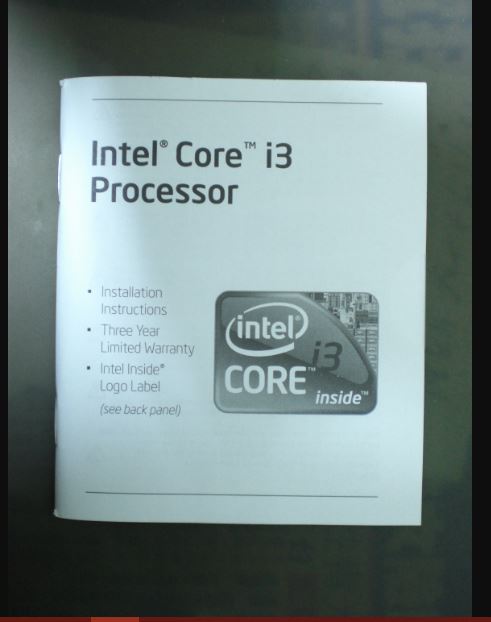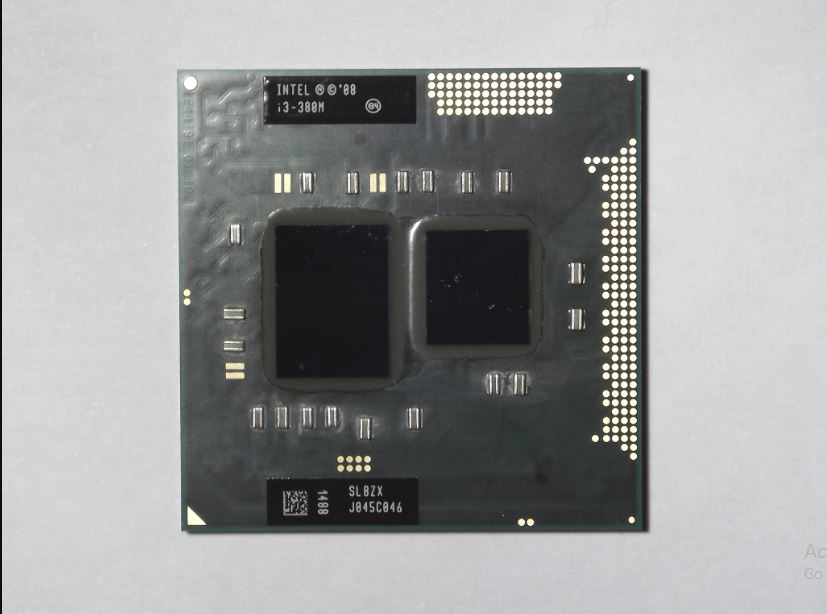The Intel processor has dominated the market and can be found in almost all PCs. It is the most prominent and widely used CPU in the computing world and has different cores that align with the upgrade features. So, it is not rare to hear questions like, is core i3 processor good?
The Core i3 processor is good. They can handle big processing tasks such as video editing and photo editing. The Core i3 also supports heavy RAM usage so that it can handle multiple applications at the same time. Compared with premium models, the i3 is a good processor.
Well, it is not enough to say that the i3 processor is good. We will be exploring the merits and limitations of the i3 processor. By the end of the article, you will have a clearer understanding of whether the i3 processor fits your specifications.
What Is An Intel Processor?
A processor is a central processing unit that the Intel Corporation created. It is one of the world’s most popular and widely used CPU families. Intel processors are known for their performance, power efficiency, and versatility.
There are different categories of Intel Core processors according to their upgrade features. These categories include the Intel Core i3, i5, i7, i9, and x-series cores. Intel Core processors’ specific features and capabilities can vary widely within each category, depending on the generation and model.
When choosing an Intel Core processor, key factors include the number of cores and threads, clock speeds, integrated graphics capabilities (for processors with integrated graphics), and power efficiency.
It’s important to select an Intel processor that matches your computing needs. A Core i3 or Core i5 processor can easily handle routine computing tasks, but you might want a higher-end Core i7 or Core i9 processor for gaming and content creation.
Your choice should be based on your budget and the specific requirements of the applications and tasks you’ll be running on your computer.

What Do I Look For In An Intel Processor?
When looking for an Intel processor, several key factors must be considered to ensure that it meets your specific needs and requirements. Here are the essential things to look for in an Intel processor:
-
Performance
Consider your intended use for the processor. If you need high performance for tasks like gaming, content creation, or running resource-intensive software, you’ll want a processor with a higher clock speed and more cores and threads. Intel Core i7 and i9 processors are typically high-performance options.
-
Cores And Threads
Consider the cores and threads if you intend to use your PC for multitasking and demanding applications. The Cores represent the number of independent processing units within the CPU, while threads indicate the number of simultaneous tasks a processor can handle.
A processor with more cores and threads is better for multitasking and demanding applications. Look for processors with “multi-core” and “multi-thread” capabilities.
-
Clock Speed
Clock speed, measured in GHz (gigahertz), indicates how quickly a processor can execute instructions. Higher clock speeds generally lead to better performance. However, don’t focus solely on clock speed; consider it in relation to the number of cores and threads.
-
Cache
You also want to check out the processor cache. The Processor cache is a small, high-speed memory within the CPU that stores frequently used data. A larger cache can improve performance, especially for tasks that involve repeated data access.
-
Integrated Graphics
Some Intel processors have integrated graphics (e.g., Intel UHD Graphics). Integrating graphics can be important if you don’t plan on using a dedicated graphics card for gaming or graphics-intensive work. In this case, look for processors with Intel’s latest integrated graphics for better performance.
-
TDP (Thermal Design Power)
TDP measures the maximum amount of heat a processor generates, typically expressed in watts. Lower TDP processors are more power-efficient and generate less heat, which can be essential for laptops and small form-factor PCs.
-
Socket Compatibility
Ensure that the processor you choose is compatible with your motherboard’s socket type. Intel processors come in various socket types (e.g., LGA 1151 and LGA 1200), and you need a motherboard that supports the same socket.
-
Generation
Intel releases new processor generations regularly. Newer generations often offer improved performance and efficiency. Check for the latest generation to ensure you’re getting the latest technology.
-
Price
Consider your budget. Intel processors range from budget-friendly to high-end options. Ensure the processor you choose fits your budget while meeting your performance requirements.
-
Reviews And Benchmarks
Before purchasing, read reviews and look at benchmark tests for the specific processor model you’re interested in. Real-world performance can vary, and reviews can provide insights into how the processor performs various tasks.
-
Future-Proofing
If you plan to keep your system for several years, consider investing in a slightly more powerful processor to ensure it remains capable of handling evolving software and tasks.
Remember that the “best” Intel processor for you depends on your unique needs. A processor suitable for gaming may not be the same as one optimised for video editing or office work. Carefully evaluate your use case, budget, and any specific software requirements to select the right Intel processor for your computer build or upgrade.
Merits And Limitations Of i3 Processor
Intel Core i3 processors offer a balance of performance and affordability, making them suitable for various computing tasks. However, like any processor, they come with their merits and limitations.
Merits Of Intel Core I3 Processors:
- Intel Core i3 processors are budget-friendly, making them an excellent choice for cost-conscious consumers. They provide decent performance for the price.
- These processors are designed to be energy-efficient, which can result in longer battery life for laptops and lower power consumption for desktops.
- Core i3 processors are well-suited for everyday computing tasks such as web browsing, email, office applications, and media playback. They can handle these tasks with ease.
- They can handle light multitasking, allowing you to run multiple applications simultaneously without significant performance issues.
- Many Core i3 processors come with integrated graphics, such as Intel UHD Graphics, which can handle basic graphics needs and even some light gaming.
- While not as powerful as higher-tier Intel processors (e.g., Core i5, i7, and i9), Core i3 processors offer satisfactory performance for most general computing tasks.
Limitations Of Intel Core I3 Processors:
- Most Core i3 processors are dual-core or quad-core and lack the hyper-threading technology found in higher-tier Intel CPUs. This means they can handle fewer simultaneous tasks.
- Core i3 processors may struggle with resource-intensive tasks like video editing, 3D rendering, or gaming with modern and graphics-intensive titles. For such tasks, you might need a more powerful CPU.
- While Core i3 processors can run many games, they may not deliver the best gaming performance, especially in the case of demanding games. It does not have the dedicated graphics card necessary for gaming.
- As technology advances, software and applications become more demanding. Core i3 processors may become less capable of handling future software updates and requirements than higher-end CPUs.
- While they can handle light multitasking, heavy multitasking with numerous resource-intensive applications may lead to performance bottlenecks.
- Some Core i3 processors use different socket types and may not be easily upgraded without replacing the motherboard. Ensure compatibility when planning for future upgrades.
Intel Core i3 processors are a good choice for budget-conscious users with basic computing needs. They offer power efficiency, affordability, and satisfactory performance for everyday tasks.
However, they may not be suitable for more demanding tasks or future-proofing, so it’s essential to consider your specific computing requirements when choosing a processor. If you need more performance, you might want to explore Intel’s higher-tier processors like the Core i5, i7, or i9.
Read: Does CPU matter for gaming
Is I3 Processor Good
I3 processors are good, especially if you do not intend to use your PC for very heavy tasks. Like all processors, Intel Core i3 processors have strengths and limitations. Core i3 processors are well-suited for everyday tasks such as web browsing, email, word processing, and media playback. They can handle these activities smoothly.
If your primary use is office work, including using productivity software like Microsoft Office or Google Workspace, an Intel Core i3 processor should be sufficient. They can also handle light multitasking, such as running multiple browser tabs and office applications simultaneously.
Core i3 processors are often more affordable than higher-tier Intel processors like Core i5, i7, or i9. This makes them a good choice for budget-conscious users. These processors are designed to be energy-efficient, which can lead to longer battery life in laptops and reduced power consumption in desktops.
Many Core i3 processors come with integrated graphics (e.g., Intel UHD Graphics), suitable for tasks like watching videos and casual gaming. However, you may want to consider higher-tier Intel processors or other CPUs for more demanding tasks.
Always match your processor choice with your specific computing requirements to ensure a satisfactory user experience.
Frequently Asked Questions
Are Intel Core I3 Processors Good For Gaming?
Intel Core i3 processors can handle gaming to some extent. They are generally suitable for playing older or less demanding games in moderate settings. Consider adding a dedicated graphics card for better gaming performance.
Can I Use An Intel Core I3 Processor For Video Editing And Content Creation?
Yes, you can use an Intel Core i3 processor for video editing and content creation, but its performance may be limited, especially for complex projects. Core i3 processors are dual-core or quad-core and lack the higher core counts found in more powerful CPUs.
Do I Need A Dedicated Graphics Card With An Intel Core I3 Processor?
You may need a dedicated graphics card with your i3 processor. Especially if you need to run graphics-intensive tasks. Integrated graphics are generally insufficient for high-end gaming or graphics work but can be suitable for everyday computing.
Conclusion
The Core i3 processor is good and capable of handling basic multitasking and tasks like web browsing, email, and office applications. Although they may not provide the best performance for intensive activities.
Ultimately, the answer to the question, “Is core i3 processor good”? depends on your requirements and budget. It’s crucial to assess your computing needs to determine whether a Core i3 processor aligns with your expectations.

